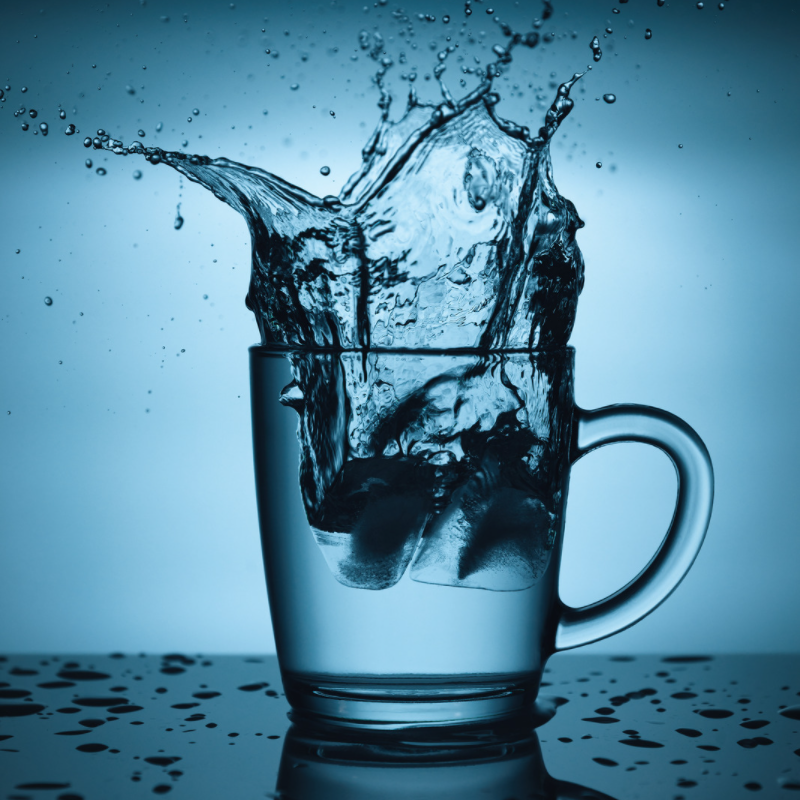905-849-9993

Why PH? Why Indeed? Part 1
I’ve come to realize that there are very few things in life more visceral than discussions on nutrition, and that includes water. The more I search, the more myths, delusions and folk tales I uncover about the popular conception of the effects of various categories of filtered water. I’d have to say alkaline water, also known as re-mineralized or high ph. water stands firmly at the top of the list. So I ask: why ph?
I going to discuss this is in greater detail over a few blogs but for now, I’m thinking of covering this by writing a two part series. In the first I’ll provide a brief treatise on the technical aspects of pH in water, how it can be changed and its effect on the human body. At least as far as I can understand it or, my research defines the science of pH in water, in part two I’ll change up and focus on how we achieve elevated pH values in the store, the products we feature and how you can enhance the pH value in the water you drink. And so to begin here is part one: the technology or science of pH in water.
PH in water is a complex subject, and the more I study it the more chemically intricate it seems to become. The hard science is that a pH value defines the number of hydrogen or the potential of hydrogen ions, present in an aqueous solution or more simply put water.
And now the Tech
Okay, let’s start with exactly what constitutes ph., and how it affects water. PH basically qualifies the potential or power of hydrogen, it’s a measurement used to specify the acidity or basicity of an aqueous solution, or water and is measured by the concentration of hydrogen ions in the solution. A lower pH means that there are more hydrogen ions in the liquid, whereas a higher pH indicates fewer hydrogen ions in the liquid. To use a simple day to day example, vinegar is acidic, with a pH of about 2, at the other end of the scale: bleach is highly alkaline, with a pH of about 13.5. So in terms of ph-101: pH is a measurement of the concentration of hydrogen ions in a water-based solution, and weirdly enough the numbers are inverse: a lower pH means that there are more hydrogen ions in the liquid, whereas a higher pH indicates fewer hydrogen ions are present.
Therefore an aqueous solution qualified as being acidic, or lower ph, would require a higher concentrations of hydrogen ions and would be measured as having lower pH values than a basic or alkaline solution. Which is surprising because on first blush my thought was the opposite.
So at which point does water become qualified at acidic or basic? There is an international measurement system represented by numbers from 0 to 14, with 7 being the median or logically, neutral. Water that tests at room temperature, above 7 is moving up to qualify as alkaline, while conversely water that tests below 7 is approaching acidic:, and yes its temperature contingent. When water is heated its dynamic equilibrium between water molecules and its ions becomes disturbed. If for example the ambient temperature increases to greater than 25 degrees celsius, water testing at 7 can actually have a pH value decrease to 0 for strong acids or greater than 14 for very strong bases. Now this leads us to a ton of information that I won’t go into here but suffice it to say the ph value of water is temperature dependent, it decreases inversely as temperature rises but remains fairly stable up to 25 degrees celsius.
What other factors affect ph? Commonly, here are 5, and they are: carbon dioxide: which when dissolved in water forms a weak acid which effects the balance of ph. Acidics or alkaline, logically if you add acid, or conversely add alkaline, you would reduce or increase ph. Sodium and calcium hypochlorite, will increase ph. Chlorine would raise the ph: pool owners, for example know all about this, they add chlorine all the time. Then there are various and sundry air-borne contaminants, which is a whole other conversation and finally air pollution in general. Science differentiates between the two, I have no idea why. Air borne contaminates and air pollution seem to me to be one and the same but are perpetually referenced as disparate influences by chemical science. Well so be it.
Digestion and Alkaline Water
When you research this topic you’ll very quickly discover an endless stream of opinions on the effects of alkaline water on the digestive system, very little of which is truly definitive or backed by hard medical science. You’ll get reams of clinical data, anecdotal data and professional opinions but very little if any true double blind – triple crossover type definitive science. For instance: I’ve read that alkaline water reduces reflux symptoms, or that a gallon a day forces the human body to increase its natural secretion of digestive compounds, and yeah okay, I can’t find an established volume – to - secretion scale so, maybe just a gallon of any type of water might cause that.
Along the same lines: I’d ask is saliva acidic, basic or neutral? To begin with according to an article in the Hindawi journal, the normal pH of saliva is between 6.7 and 7.4, making it relatively neutral. According to Healthline normal pH is 6.2 to 7.6, again relatively neutral but on a greater scale. Generally though human saliva is considered more acid in makeup than basic. I raise this point only because every instinct I have tells me that the second water comes into contact with saliva its chemical composition just has to change. Either the acidic nature of the saliva changes, and I suspect is neutralized as it combines or dissolves into the water or the composition of the water changes as it assimilates or dissipates the chemical composition of the saliva.
I would assume that one or the other would become less or more acidic as they blend into one another, and I would suspect the impact would be immediate no matter how short the contact time may be. To date though, I haven’t found a hard definitive answer to that; opinions, suppositions and postulates yes: science no.
So as I researched this I came across a website called Tompkins Dental, one of a number of dental websites referencing high acid, or acidic saliva and the effect it has on oral health. This was in response to my query: “how exactly and to what degree does saliva effect the pH value of water”? Tompkins dental came up because their website has an article titled: “Seven Ways to Make Saliva More Alkaline and Less Acidic”, and yeah I bit. Truly it’s well written. It’s a good professional article but in all fairness, to me, like many of these sites, it offered little or no science and basically just covered off the common beliefs about pH in water that I hear all day. Such as: focus on a high alkaline diet, limit bread and sugar, avoid artificial sweeteners, reduce alcohol and caffeine, incorporate seeds and beans (okay that one’s iffy) and wash away acidic foods by drinking water.
Do you see my point? Anecdotal at best, and very commonly indicative of the general beliefs most people hold about adding or subtracting pH in their diet. With some variation that’s the type of information you’ll find by the boatload when you research pH in water.
Now in terms of pure biology I remember reading an article some time ago that clearly and scientifically proved that pH or pH balance in the human body was directly attributed to the functional efficiency of the lungs and renal system. More on that in part two but suffice it to say that your kidney and lung functioning will largely determine the pH balance in your body. The two primary functions of the human kidney is one: filter impurities and two: maintain the right balance of acid versus alkaline in the blood, maintaining an ideal pH level of 7.4. Conversely the blood carries carbon dioxide to the lungs, where it is exhaled. As carbon dioxide accumulates in the blood, the pH of the blood decreases (acidity increases).
How do we decrease acidic saliva? How do we increase or decrease pH in our body and what if any direct effect will that have on our health? I'll go into this in greater detail in part 2.
For now here is the 101 on “WHY PH”, and “WHY” so many of us wonder about it.
